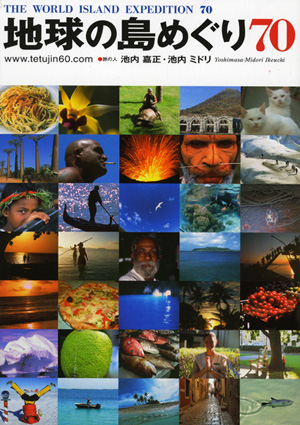Republic of Vanuatu Santo Island_South Pacific Vanuatu beef
- Friday, September 28 2007 @ 05:29 PM JST
- Contributed by: tetujin60
- Views: 4,969

Kobbari manufacturing plant
Cows raised on the ranch
Kobbari ingredients
Palm skin drying factory
Quiche [Special Pie]
Natandera Caffe
Mochizuki playing with a cow
I will taste the new food at 3 o'clock
Johnny and Tuck
Grape fruit that grows naturally
Vanuatu beef sirloin steak
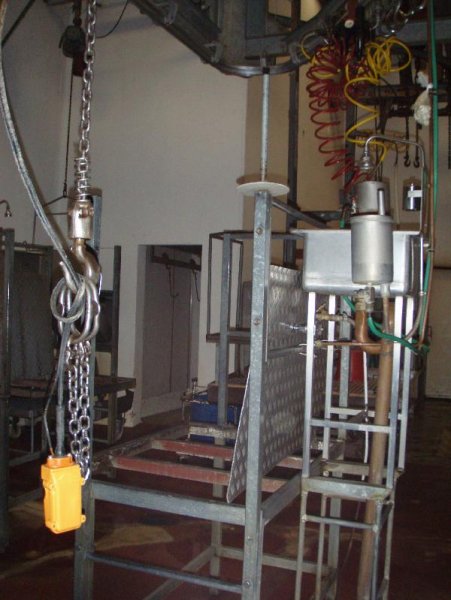
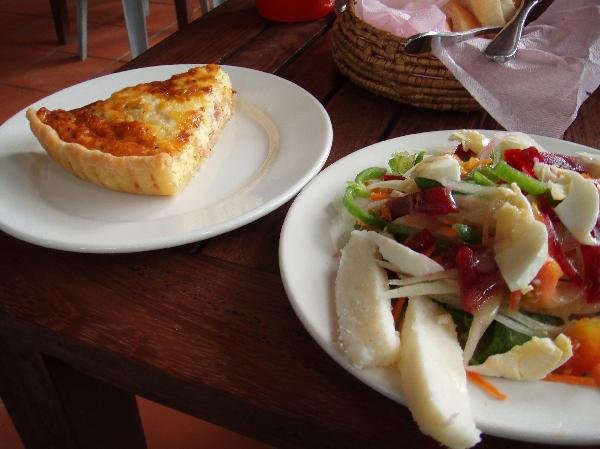
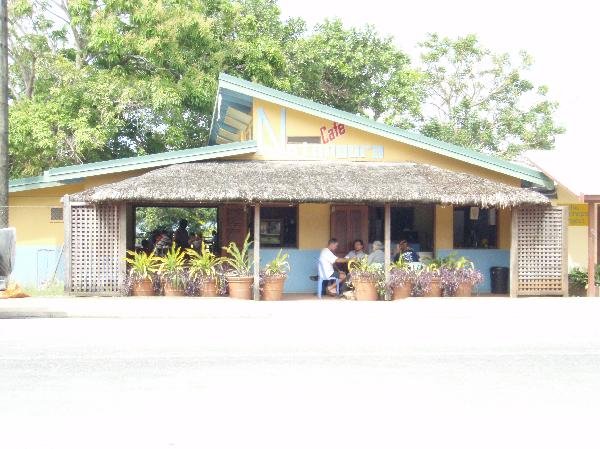
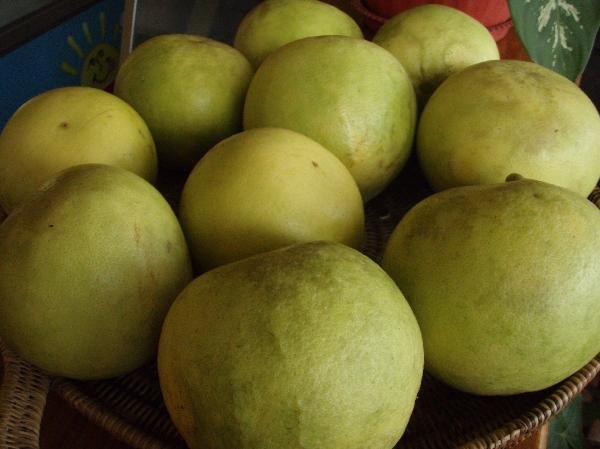
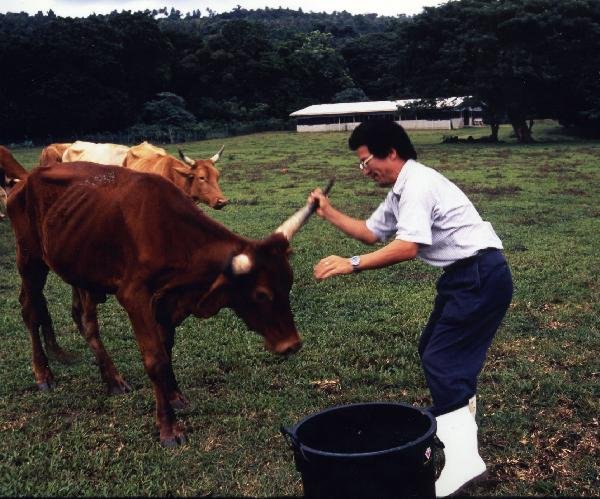
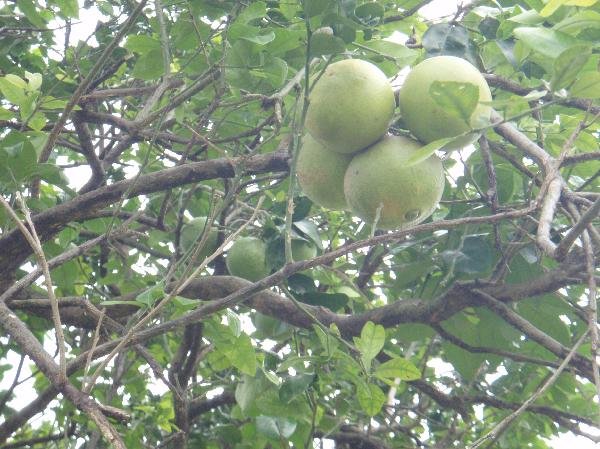
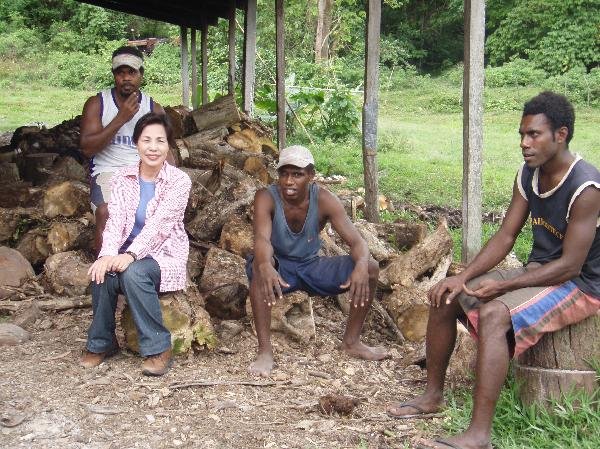
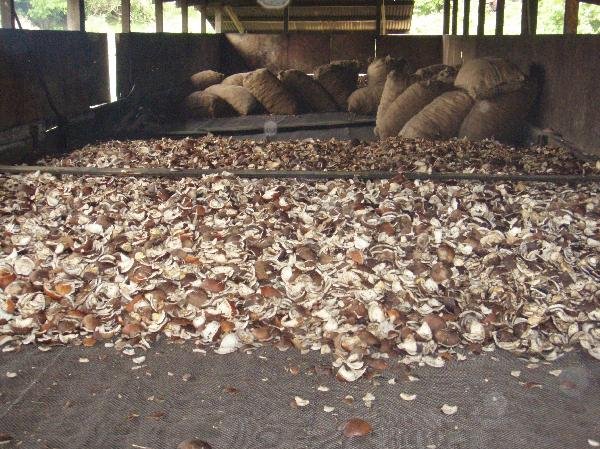
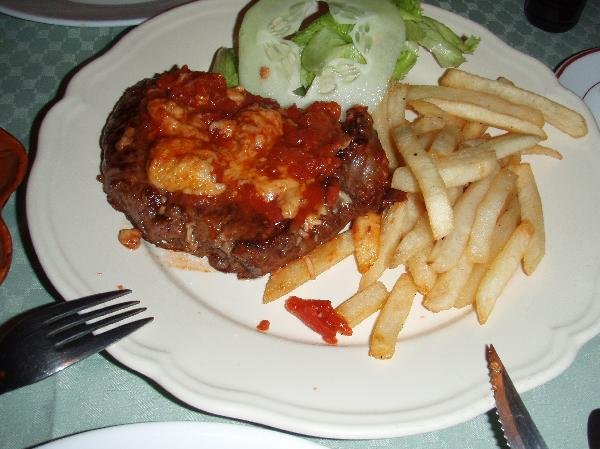
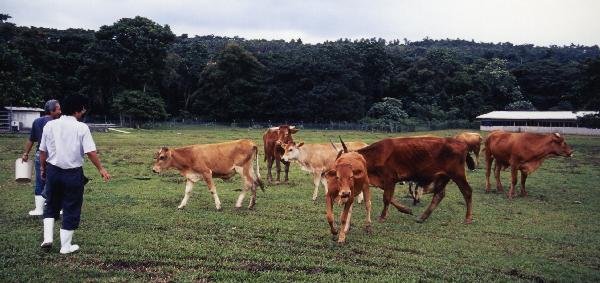
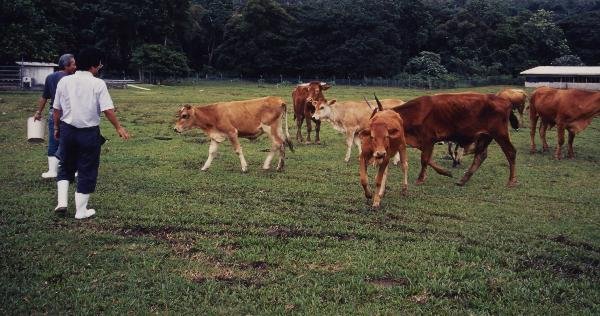
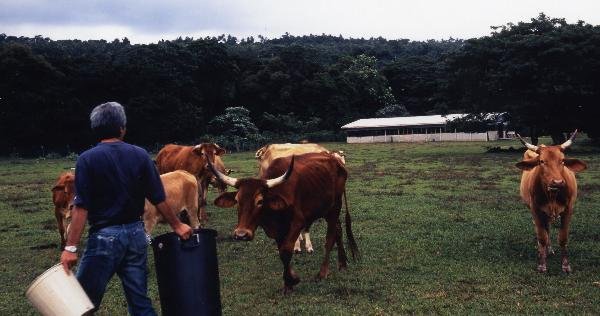
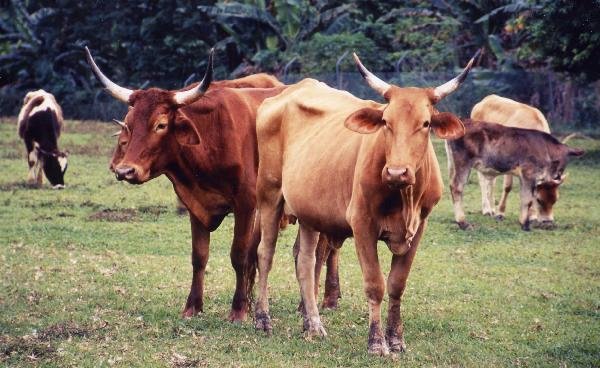
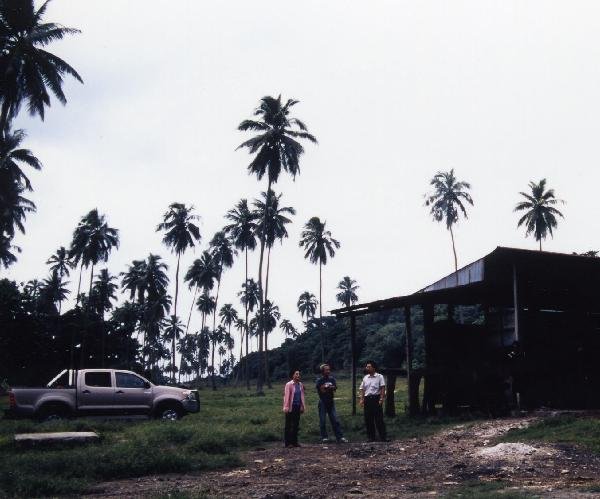
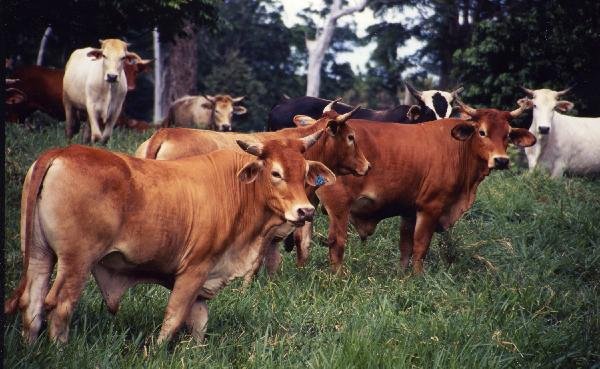
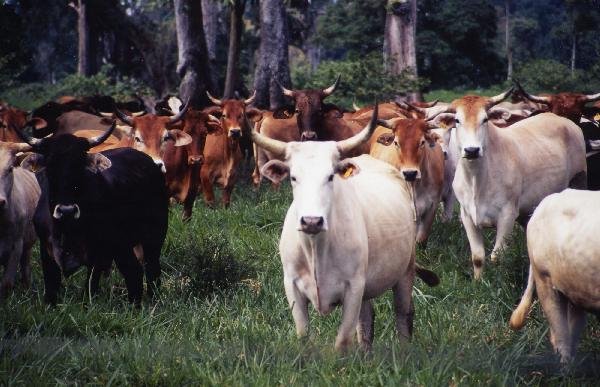
Santo Meat Packers Ranch
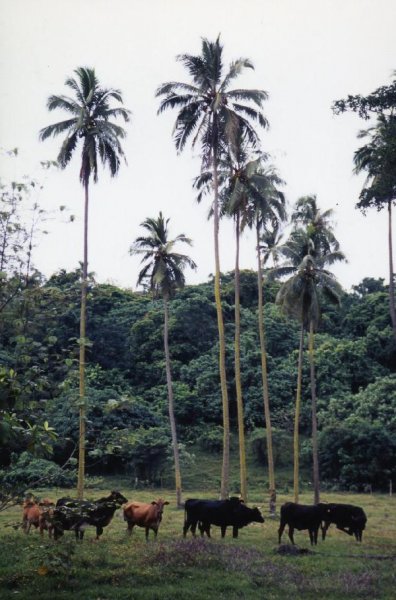
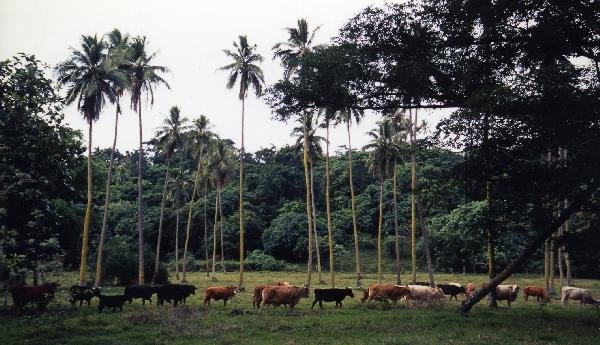
The name of this restaurant,
which is not on the menu, is "quiche".
Today's daily special pie.
The pie with condensed seafood has a taste
that can be lined up everywhere.
I am happy to eat cheap, fresh and delicious tastes.
"Thank you!"
Vanuatu cows with 100% safety, grown on natural
pasture in the sun in the South Pacific.
Grapefruit and other feeds are squeezed juice from the town's "Natangola Cafe".
The grapefruit juice here is delicious, squeeze three raw grapes.
Squeeze seeds and dregs, 100% pure grapefruit fresh juice.
All kitchen waste is fed to cattle and is environmentally friendly.
The time was just past 3 o'clock,
and the cows rubbed against Mr. Mochizuki and Mr. Kagawa
who brought food.
It's like a pet.
The skin of about 100 grapefruits is flattened in a blink
of an eye, and the [coconut pomace] is also scrambled.
Small cows are pushed back by the fierce competition
for survival, which they are familiar with.
are named, such as "Johnny" and "tuck." It's time for new feeding at 3 o'clock.
Kotetsu, who knew nothing, approached the cows.
I think I'll get some food, so I'll come with Kotetsu with "Johnny" at the beginning.
"Oh, it's dangerous," dozens of them came towards us.
Kotetsu runs away with a short run.
On the Island, several kinds of fruits grow naturally as one of the blessings of the sun.
"Mr. Kagawa" (54), who has been studying for three months, is working on a new feed.
Research cows inspired by the skin and pomace of fruits (bananas, oranges, grapefruits, etc.)
The ranch has 6,500 grazing and 60 local employees riding horses to manage it.
In Japan, it takes 3 years to produce beef, but on the Island, it takes 3 years and 6 months.
Natural grass does not die all year round, and they are grazing calmly under the palm trees, eating the grass of the earth.
When it comes to business, delicious meat with "fat" is required.
A recommended menu that you can only taste
here with its profound taste and gravy.
I ordered a medium rare sirloin steak with black pepper
at the hotel restaurant "Hotel Santo".
I put it on my tongue and checked the taste.
There is little fat, but the taste of meat is condensed.
The gravy spreads in your mouth with ease.
The vast ranch is end-to-end (75 km).
It takes an hour to get to the car.
Mochizuki, who manages the ranch, is a celebrity with a 15-year calendar on the Island.
The rancher I saw through the introduction of the hotel manager in Port Vila was a Japanese company from Santo Meat Packers.
Cows raised on pesticide-free pasture that has been exposed to the sun are more like "beef" than "steak".
"One voice, isn't there any more left?" Johnny begging.
Mochizuki happy smile playing with the cows.
Japanese working on livestock on the Island.
Good luck, two people.
I'm looking forward to the day when Santo cows will be in the limelight.
It seems that 70% of the production is exported to Japan, but I have never seen it.
South Pacific Vanuatu beef
